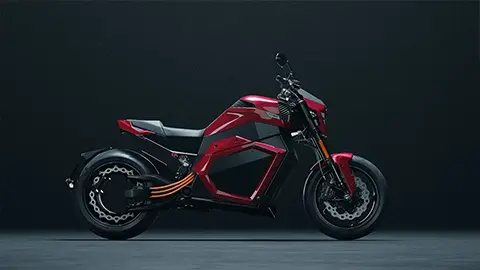Miniaturizing Electronics for Better Performance
A few key components make an electric car go: the battery, the electric motor, power electronics, and battery management systems. An essential component for electric vehicles, battery management systems monitor the voltage, current, and temperature of a battery in real time, and ensures the battery delivers the right amount of power to the motors when needed.
Battery management systems not only help make the an EV work, they also optimize the performance and life span of the battery. But with multiple electronic boxes connected via heavy copper cables inside battery packs, battery management systems are large and heavy, occupying a significant portion of a battery pack’s volume and weight. The space that battery management systems take up could be better occupied by more battery cells, and their weight drags down efficiency, performance, and range.

Less Weight, More Range and Flexibility
Recent advancements from LG Innotek, one of the largest companies in the battery space, may allow battery management systems to go wireless – which could help increase EVs’ efficiency, range, and battery capacity. The company says that a wireless battery management system would “drastically” improve battery performance by removing dozens of cables and reducing weight by almost 200 pounds on average. The removal of all of those cables secures an additional 10 to 15 per cent of space in a battery pack for additional cells to further increase range – on average, LG Innotek claims that 12 miles of range would be added along with the 200-pound weight decrease. Alternatively, the size of the battery container could be reduced, providing additional interior or cargo space.
How does it work? LG Innotek’s wireless battery management system uses embedded radio frequency (RF) communication modules that combine essential components such as an RF communication chip and antenna into one compact unit. To send and receive data for an electric vehicle battery wirelessly, the wireless battery management system integrates dozens of electronic components such as an RF circuit, RF communication chip and antenna.
The RF communication module was developed in-house by LG Innotek. It is composed of a four-layer circuit board that densely integrates dozens of wireless communication components. The compact structure means the battery management system can easily be mounted anywhere in or near an EV’s battery.

Improved Reliability and Virtual Diagnosis
LG Innotek says the wireless system is compatible with almost all forms of communication chips currently installed in EVs, and can be easily tested in advance of installation to ensure proper functioning. Indeed, the company says that their new wireless battery managers can be inspected virtually at any point – just like your company’s IT department can remotely diagnose issues with your computer from thousands of miles away.
While wireless communication may, at first blush, seem less reliable than a wired connection, LG Innotek claims it can actually enhance reliability. Cables and connectors, especially in automobiles that have to work in extreme environments and with frequent vibrations and jolts, can wear out or fail over time; wireless eliminates that failure point. Furthermore, the assembly of a battery pack, previously conducted manually due to the complexity of cable connections, can now be automated using robots, achieving cost reductions as well.

800-Volt Technology
The company's new wireless battery management uses 800-volt technology, which is the highest voltage among commercially marketed systems. 800-volt technology allows the use of thinner cables, and also enables faster charging speeds. LG Innotek has a lot of experience with 800-volt systems, having already developed and sold 800-volt wired management systems since 2020. Since the charging duration decreases for an electric vehicle as the voltage increases, it is thought that 800-volt systems will become more prevalent in electric vehicles as customers demand increased convenience and charging speed.
LG Innotek plans to start mass production of the wireless battery management system in 2024, and it is already targeting installation in a number of domestic and imported vehicles starting in the first half of next year. It is also working on a wirelessly-controlled electric vehicle charge controller (EVCC) which could further reduce costs and complexity for EV manufacturers.
















